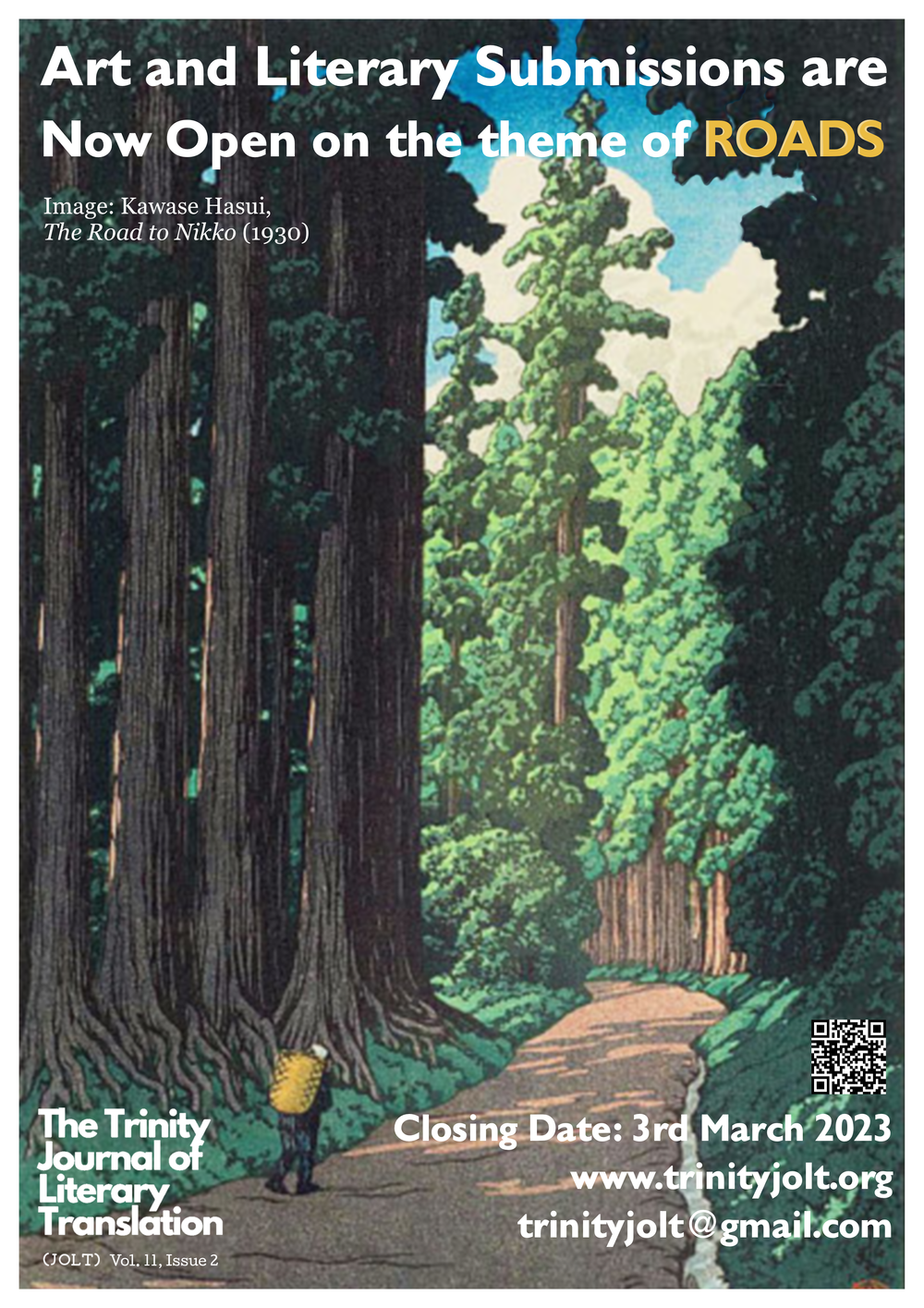With the new term in College come new plans and ambitions for the staff of the Trinity Journal of Literary Translation (JoLT). Editor-in-chief Anastasia Fedosova and her skilled team now turn their attention to the legacy of the publication, as well as its impact on the range of communities involved with translational and cultural studies.
Ireland’s only literary journal dedicated exclusively to translation, JoLT plays a critical role in the campus culture and community by promoting a diverse plurality of voices. It is home to a wide range of translational experiments and challenges for its contributors and readers, offering translations across genres from an assortment of world languages not limited to Spanish, Irish, Polish, and Hebrew.
Among their ambitious new projects includes a collaboration with the Trinity Centre of Literary and Cultural Translation (TCLCT), launched in 2018 with the mission of bringing the best of world literature to readers in Ireland and promoting literary translation at Trinity. Speaking with Trinity News, Fedosova said, “TCLCT is an amazing institution with great resources and dedicated scholars, and I am sure our collaboration will prove to be mutually beneficial.” Adrianna Rokita, an MPhil student associated with TCLCT, signed on with JoLT as the new Deputy Editor for the Hilary term.
“For the newest issue, which is currently accepting submissions, Fedosova encourages contributors to explore more unorthodox and adaptive approaches to translation.”
For the newest issue, which is currently accepting submissions, Fedosova encourages contributors to explore more unorthodox and adaptive approaches to translation. In the past, most contributors have approached the “problem” of translation by translating works literally. While “literal translations” are a common and logical approach to this project, Fedosova believes the future of JoLT lies in curating more experimental methods, such as “domestication” and “foreignisation”.
According to Susan Bernofsky, the domestication approach to translation involves adapting a work to fit a different time, culture, or audience. This method brings the writer to the reader and lets the reader forget that they are reading a translation. The translator targets a familiar culture and restates its elements through a reimagining of the original text. Domestication is a process of contextualization and appropriation.
On the other hand, foreignisation aims to preserve the authenticity of the original text by leaving some words in the original language or preserving the sentence structure. This method of translation, according to Fedosova, contributes to the intercultural dialogue between the two languages. The novelty of these two relatively new approaches to translation creates opportunities for creativity and cross-cultural dialogue that would otherwise be missing from a strictly literal translation.
“Domestication and foreignisation are just two examples from the field of translation studies, but there are many more approaches, many more paths one can take,” said Fedosova, hinting at the theme of the next issue. The new editorial theme is “Roads”, a subtle reminder that many paths lead to the same destination, especially in translation. The editorial staff of JoLT hopes to see a wide range of responses to the theme of the next issue, incorporating creative methods and experiments to the task.
“JoLT is planning to host translation workshops during the Hilary term, suitable for both veterans and newbies.”
To further explore translation as a practice with contributors, and the campus community more broadly, JoLT is planning to host translation workshops during the Hilary term, suitable for both veterans and newbies. In accompaniment with these workshops will be lectures and other outreach events by the publication staff. “We have ambitious plans for this term, most of which I am bound to keep a secret for now,” Fedosova concluded. Under her guidance, students of Trinity can expect more news about the magazine and its goals for the future. “Our priority, however, has always been and remains the production of a high-quality publication, showcasing the talent and hard work of our submitters, contributing to the multicultural dialogue, and bringing awareness to the significance of the translation studies and the figure of the translator themselves,” she said.
Last November, the magazine hosted a launch party for its Michaelmas issue, themed “Dreams,” at Doyle’s Pub. The launch hosted around forty people and a wide range of presenters took up the microphone to read and discuss their work, including the contributing artists and editorial staff. One unique feature of the last issue was an essay discussing Italian adaptations of James Joyce’s Dubliners, written by Sara Begali. Readers of the magazine can expect to see more critical responses to the discipline of translation in the next issue.
For more information about the Trinity Journal of Literary Translation, you can contact the team via email at: [email protected]. Alternatively, you can find them on Facebook, Instagram, or Twitter. Check out their website to see a digital copy of the recent issue or submit to the next one at trinityjolt.org.






